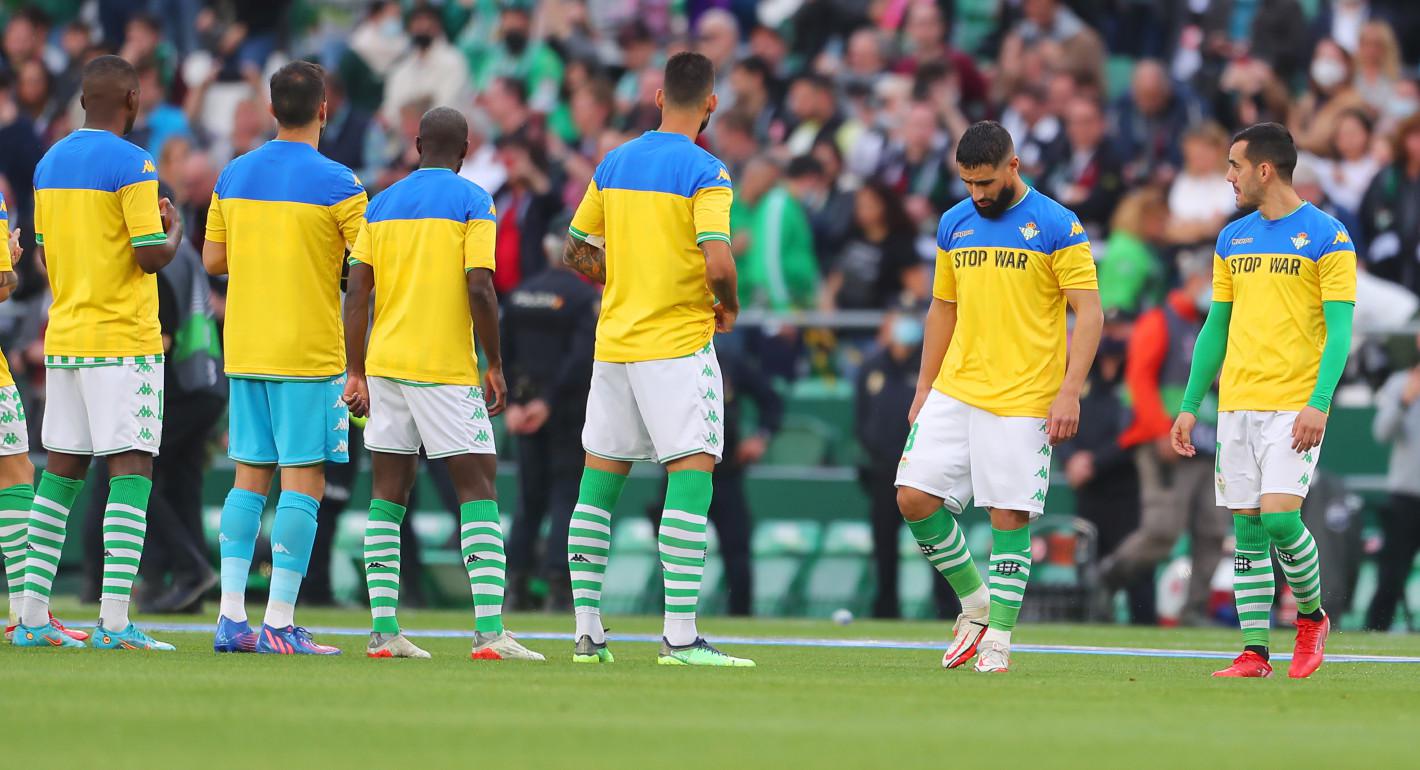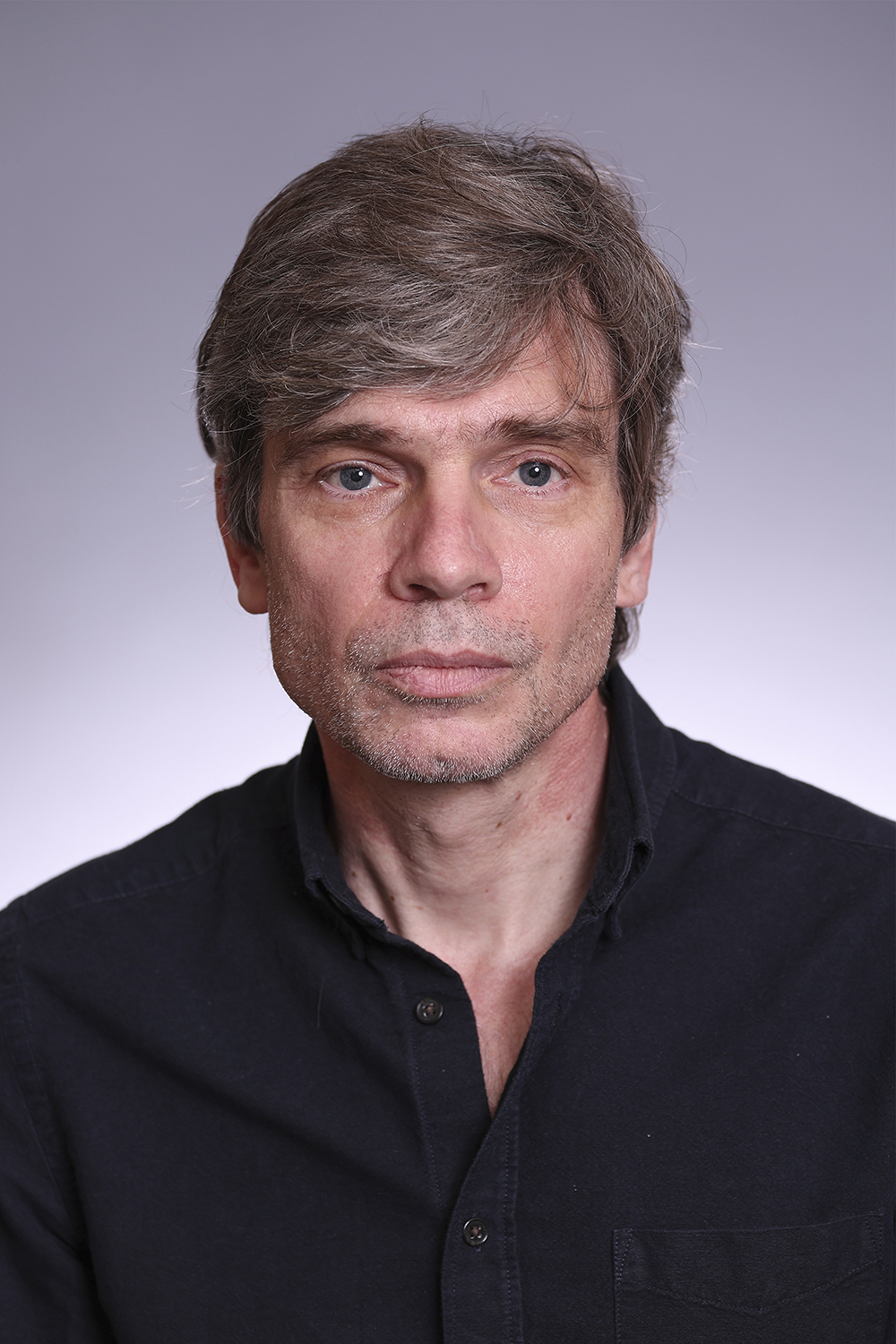The main source of Russian aggression is a profound mistrust of the West and the firm belief that it intends to inflict a “strategic defeat” on Russia. As long as this fear persists, the war will not end.
Tatiana Stanovaya
{
"authors": [
"Francesco Siccardi"
],
"type": "commentary",
"centerAffiliationAll": "dc",
"centers": [
"Carnegie Endowment for International Peace",
"Carnegie Europe"
],
"collections": [
"Europe’s Eastern Neighborhood"
],
"englishNewsletterAll": "",
"nonEnglishNewsletterAll": "",
"primaryCenter": "Carnegie Europe",
"programAffiliation": "EP",
"programs": [
"Europe"
],
"projects": [],
"regions": [
"Russia",
"Eastern Europe",
"Ukraine",
"Western Europe",
"United Kingdom",
"France",
"Germany",
"Iran"
],
"topics": [
"EU",
"Economy",
"Security"
]
}
Source: Getty
It may be the dawn of a new era of sports ethics.
Russian President Vladimir Putin’s invasion of Ukraine has pushed the international community to impose unprecedented sanctions on Russia. Most of these actions are financial, designed to halt Russia’s economy and cripple Putin and his wealthy allies. But another form of sanctions has emerged: in the past few weeks, multiple independent international organizations have moved to exclude Russia from major cultural and sporting events, from the Eurovision Song Contest to the Formula One championship. But because of the magnitude of the interests involved, it is the ban from football that could hurt the Russian regime’s soft power the most.
Russians are not among the masters of the game, but football remains the most popular sport in the country. Club fan bases are large and have a long tradition across Russia, sometimes playing an important role in the construction of local identities. Outside the country, Russia’s presence is a natural part of the European game. The Russian Super Liga consistently ranks in the top ten European football leagues, with teams such as CSKA Moscow and Zenit Saint Petersburg occasionally reaching the final stages of European club tournaments. Additionally, the Kremlin has invested unprecedented resources in football: fans are used to Russia hosting international events and to seeing Russian companies and oligarchs partner with the Union of European Football Associations (UEFA) or own football clubs.
So the decision of FIFA, football’s highest governing body, and UEFA to suspend Russia’s national teams and clubs from all international competitions was an unexpected and shocking move from organizations that traditionally hold nonpolitical positions. (In recent times, only South Africa and Rhodesia during apartheid have faced a similar treatment.) FIFA’s decision to exclude Russia from the 2022 World Cup was dictated also by the fact that the Polish, Swedish, and Czech football associations refused to face Russia in the upcoming World Cup playoffs—another first. To make things worse for Russia, UEFA also decided to strip Putin’s hometown of Saint Petersburg of the Champions League final, the most important club football event of the year.
Since he came to power, Putin has used high-profile sporting events to present Russia as a reliable, professional international partner. Under his watch, the country has hosted the 2014 Winter Olympics in Sochi and the 2018 FIFA World Cup. Other authoritarian governments have used a similar playbook: from China to Qatar, these regimes have often engaged in “sportswashing” to gain international credibility and paper positive narratives over their problematic domestic human rights records. The decision to invade Ukraine tore this narrative apart: the most immediate consequence will be eliminating Russia from consideration for hosting any major international events in the foreseeable future. In turn, this will have implications for the country’s reputation as a tourist and business destination, if and when sanctions are lifted.
Sponsorships are another tool for countries wanting to clean up their international reputation—and another front for momentous repercussions after Russia invaded Ukraine. As one of the most flush sports in the world, football offers a multitude of options for branding—and Russia was quick to seize them. For example, anyone watching a recent Champions League match will have noticed Gazprom’s logo on the billboards along the pitch sidelines. Since 2012, the multinational energy corporation, which is majority-owned by the Russian state, has been an “official partner” of the tournament, as well as other competitions and organizations. On February 28, UEFA announced it was ending its partnership with Gazprom, leaving on the table an estimated $44 million per year in sponsorships until 2024.
Gazprom’s investments in some European national leagues often aligned with its business interests. In Germany, the company is the main sponsor of Schalke 04, a football club based in one of Germany’s coal-producing districts. The partnership with Schalke dates to 2007, when Germany was transitioning away from coal and toward natural gas and when the Nord Stream 1 pipeline was entering its final design stage. Nord Stream 1, which is owned and operated by Gazprom, became operational in 2011. Last week, Schalke 04 announced the termination of its partnership with Gazprom. Similarly, in 2010, when agreements for the construction of the South Stream pipeline were being signed with Balkan governments, Gazprom became the main sponsor of the Red Star Belgrade football club. The project South Stream fell through in 2014, but Gazprom has retained the sponsorship of the club to this day.
In addition to Gazprom, the Russian name that resonates the most among football fans is that of Roman Abramovich, the owner of Chelsea FC in England. A London-based Russian oligarch well connected to the Kremlin, Abramovich bought the club in 2003, ushering in a new era in European football. Since then, owning a Premier League club has become a de rigueur tool of soft power for billionaires and foreign states looking for international validation. Saudi Arabia, whose Public Investment Fund recently acquired Premier League club Newcastle United, is just the latest addition to a group of foreign, ultra-rich club owners.
If Abramovich’s rise changed the course of English football, his downfall might be just as consequential. Bowing to mounting political pressure following the invasion of Ukraine, on March 2 he announced he was selling the club. On March 10, the British government decided to freeze Abramovich’s assets, prohibiting him from making any transactions in the UK, and imposing a travel ban. Abramovich wasn’t alone: on March 2 Everton FC parted ways with oligarch Alisher Usmanov, who was involved in sponsorship deals with the club worth over $25 million per year. Usmanov was previously a shareholder of Arsenal FC, another Premier League club, from 2007 to 2018.
Opposition has extended beyond finances, too. Since the war in Ukraine started, international football has offered stories of courage and solidarity and served as an entry point for people who might otherwise not follow the conflict. The story of Yuriy Vernydub, the coach of Moldovan champions FC Sheriff Tiraspol who joined the Ukrainian army, went viral. Across Europe, players are warming up in “No To War” T-shirts, and fans and clubs are organizing aid for Kyiv. In England, club captains wear yellow-and-blue arm bands that represent Ukraine’s flag. Italians have listened to AC Milan legend Andriy Shevchenko’s plea for peace in his native Ukraine, and in Portugal, the Benfica crowd roar was so loud when Ukrainian player Roman Yaremchuk took the field that he was moved to tears.
The international football ban has led many to wonder whether we are witnessing the dawn of a new era of ethics in sports. China’s decision not to air Premier League football in the country over Ukraine support suggests instead that sports might be the latest front line in the confrontation between democracies and authoritarian regimes. Beyond the shiny international events, the billion-dollar investments, and the lucrative sponsorships, football remains the world’s most popular sport, and a formidable tool of soft power. In being cut out of the international football system, Russia has lost a powerful microphone.
Carnegie does not take institutional positions on public policy issues; the views represented herein are those of the author(s) and do not necessarily reflect the views of Carnegie, its staff, or its trustees.
The main source of Russian aggression is a profound mistrust of the West and the firm belief that it intends to inflict a “strategic defeat” on Russia. As long as this fear persists, the war will not end.

Tatiana Stanovaya
Europe’s interests in Syria extend beyond migration management, yet the EU trails behind other players in the country’s post-Assad reconstruction. To boost its influence in Damascus, the union must upgrade its commitment to ensuring regional stability.


Bianka Speidl, Hanga Horváth-Sántha
European democracy support strategy in 2025 prioritized protecting democratic norms within Europe. This signals the start of a structural recalibration of the EU’s approach to democracy support.



Richard Youngs, ed., Elena Viudes Egea, Zselyke Csaky, …
The Russian army is not currently struggling to recruit new contract soldiers, though the number of people willing to go to war for money is dwindling.

Dmitry Kuznets
It’s dangerous to dismiss Washington’s shambolic diplomacy out of hand.

Eric Ciaramella